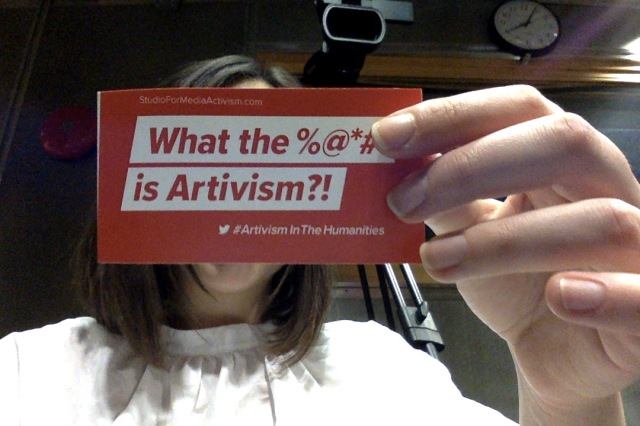‘The ARTivism Lab Speaker Series’ aims to showcase a diverse group of activists, all of whom are working to creatively foster a community which challenges the dominant hegemony present within their environment. The first event of this year’s series, titled ‘Dreaming Big’, focused primarily on notions of progressive thought and intersectional action within the university framework. In introducing the event, moderator and professor Melanie Panitch highlighted Ryerson’s attempts to brand itself as ‘innovative’. However, such innovation is often viewed and initiated through a wider lens of productivity. As such, through its prioritization of efficiency, Ryerson takes on the qualities of a neoliberal academy. Such matters were explored throughout the discussions of the panelists.
One concept that re-appeared throughout the evening, was the understanding that knowledge is not just a result of attending an educational institution. Just as knowledge is diverse, so are its sources. As put by panelist Sandra Jeppesen, it is important to both recognize and value that knowledge comes from all experiences, and not only those that involve a PhD. The significance of experience was also stressed by Audrey Hudson, who’s work revolves around Hip-Hop’s ability to expose and discuss race, colonization and representation. As a medium dependent on the lived experiences of minority voices, it can be used as an educational tool to bring attention to typically silenced identities. Experience and its relation to knowledge and education can also be seen in the work of Tania Bruguera. As an art activist, she uses public performance to bring attention to issues of power and control primarily in Cuba. Both an artist and an educator, Bruguera focuses on the education and information that comes through conversation. She stresses the importance of art, in educating others of one’s own personal experience. As a whole, great importance should be placed in listening to the experiences of those around us, for that is what will drive artivism forward.
As a panel consisting of activists, much of the work being discussed acted in opposition to the neoliberal framework. Opposing such framework and the constraints it applies on the education system directly, is RM Kennedy. As a college professor, RM played an active role in protesting for the rights of college faculty within their recent strike. Their biggest concern being the rise of precarious labor and the loss of academic freedom among professors. RM’s fight was reflective of the effects of neoliberalism, discussed further by Susan Preston and Jordan Aslett. As a way to turn profit, colleges are continually adopting more contractual staff. Not only are such faculty members paid less, they also lack the job security given to full-time staff. Similar to RM, Audrey Hudson’s work also contradicts key principles of neoliberalism. As put forward by Hudson, “neoliberalism negates community”. Her work has strong ties within the community, whereas neoliberalism typically focuses on the role of the individual. As a whole, neoliberalism and activism exist in opposition. Art can be used as a medium to communicate the tension between these two conflicting forces.
Finally, the words of RSU’s head Susanne Nyaga strongly resonated with my personal experience here at Ryerson. Susanne drew attention to the danger of speaking for a culture which is not your own; despite one’s intention. Here at Ryerson, great focus is placed on speaking to identities which have typically been silenced in the university setting. However it is important that in doing so, such conversations and initiatives take place through thoughtful collaboration. In my third semester, I was part of a fashion event planning class which worked to put on a fashion show on gender fluidity. No one in the class was non-conforming, and minimal (if any) effort was put into collaborating with those who were. Such initiative was harmful, as it attempted to showcase an experience and voice which was not our own. Upon speaking with the professor, we were successful in changing the theme of the event to something more fitting for the class. While it was a well-intentioned idea, there was simply not enough time to pursue it thoughtfully or genuinely.

Works Cited
“Education is always about the future: An Interview With Tania Bruguera”, Temporary Art Review 2017
Preston, Susan, & Aslett, Jordan, “Resisting Neoliberalism from with the Academy: Subversion Through an Activist Pedagogy” Social Work Education, 2014 Vol. 33, No. 4, 502–518